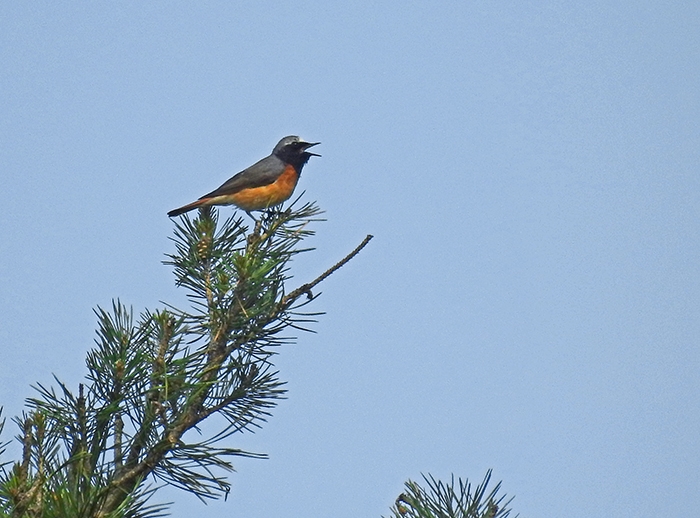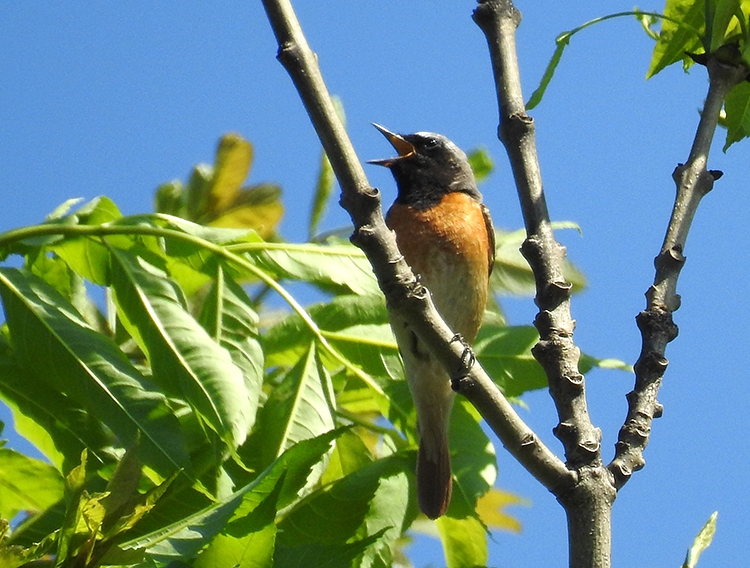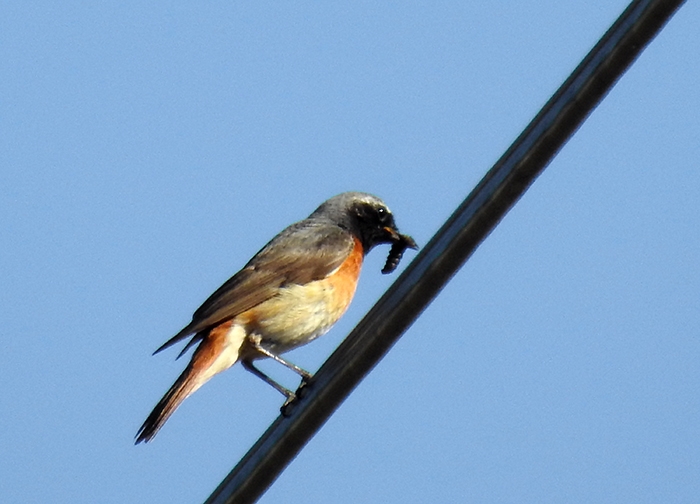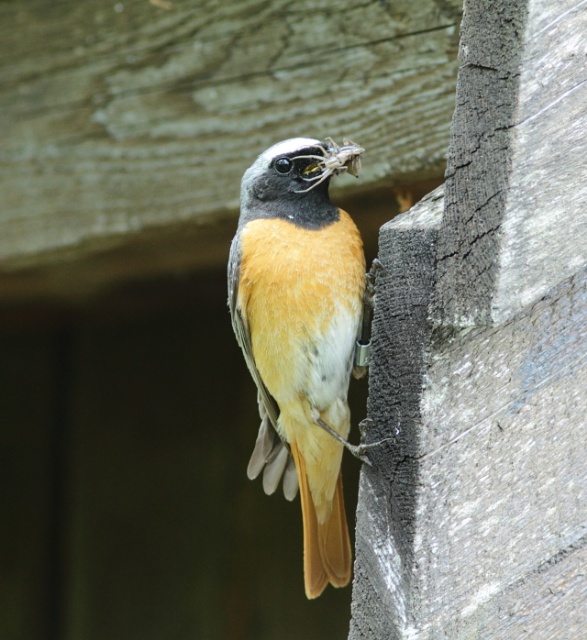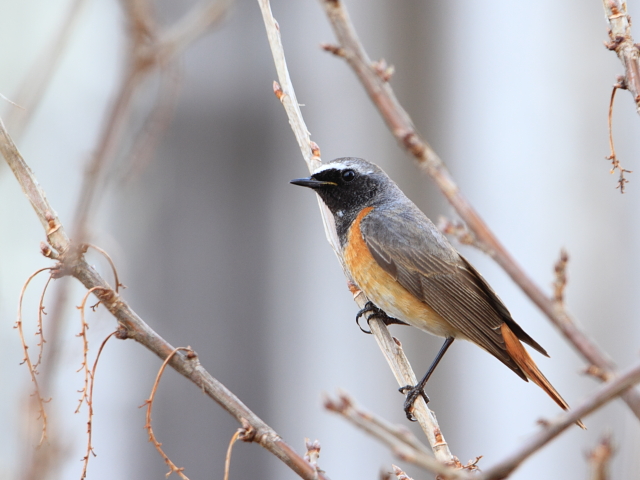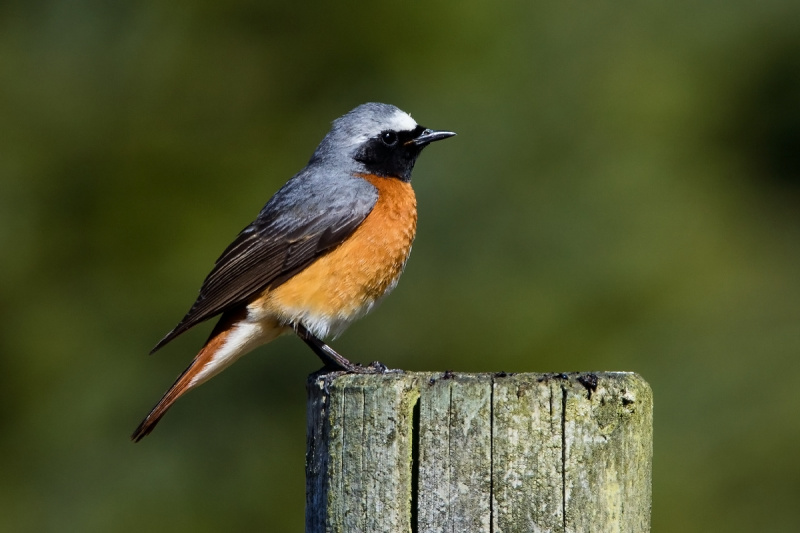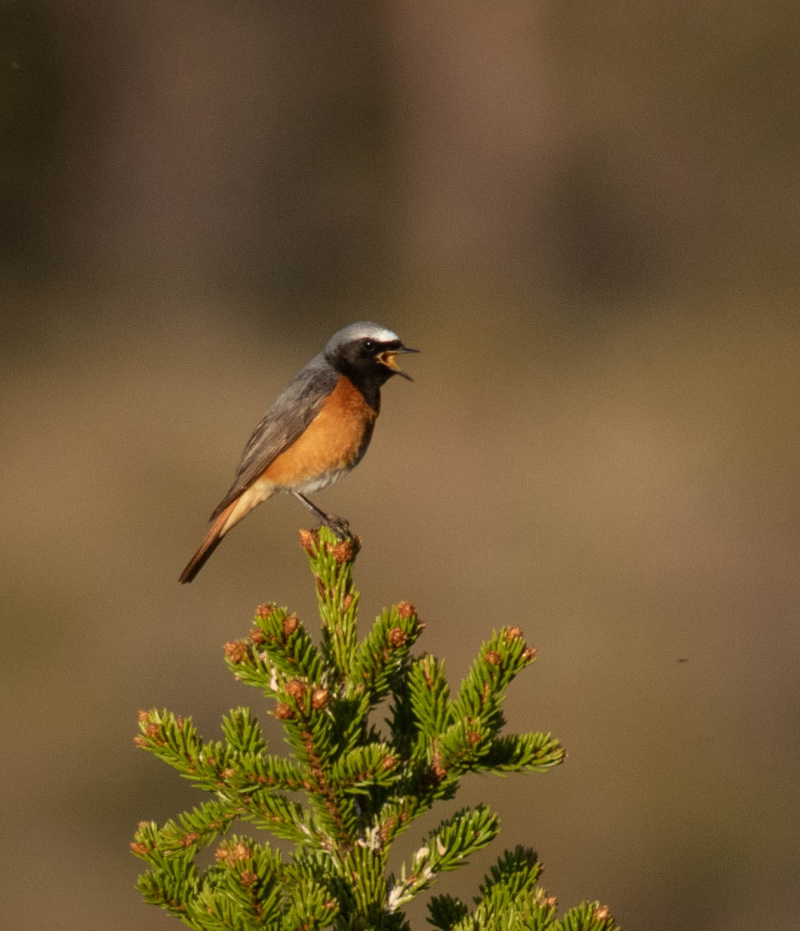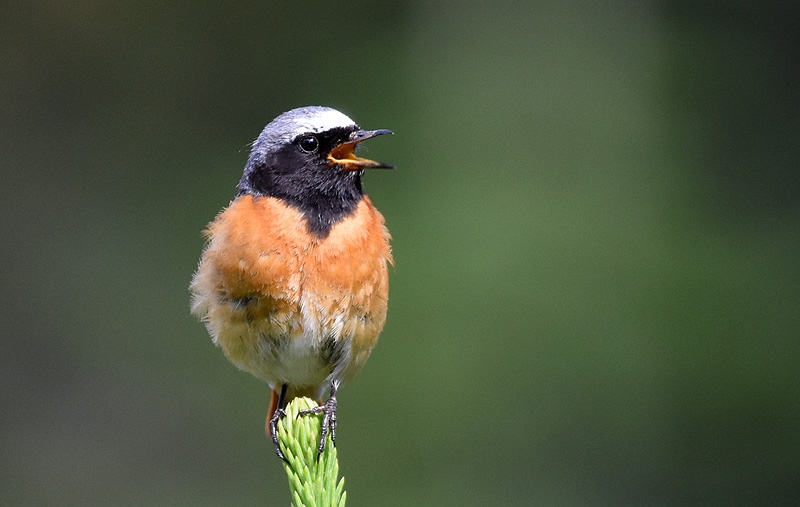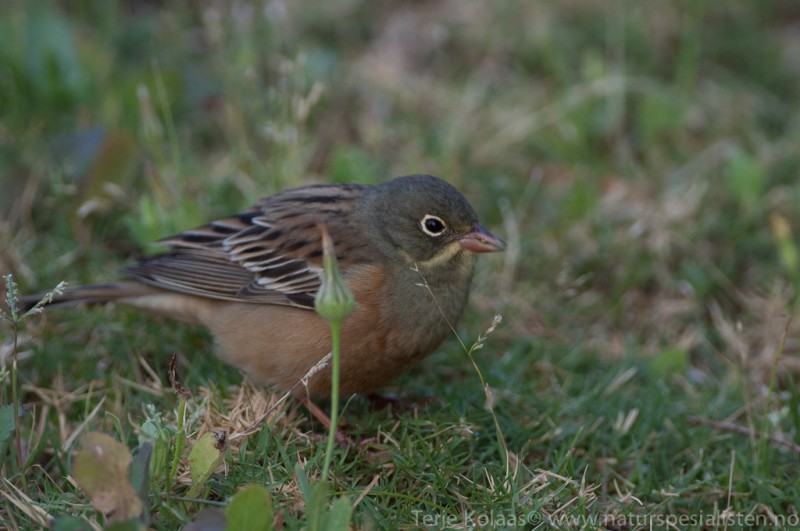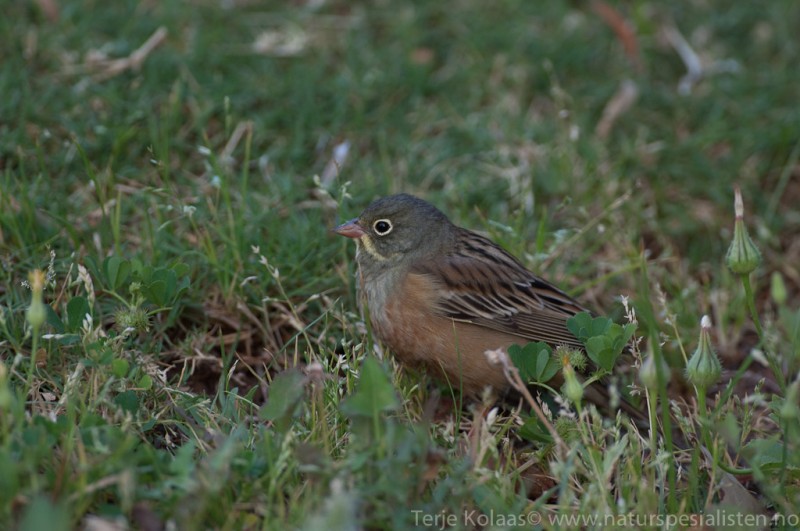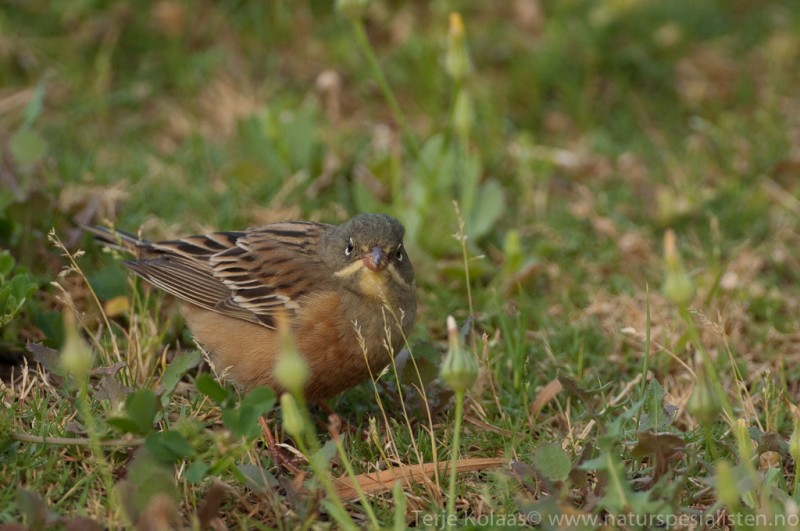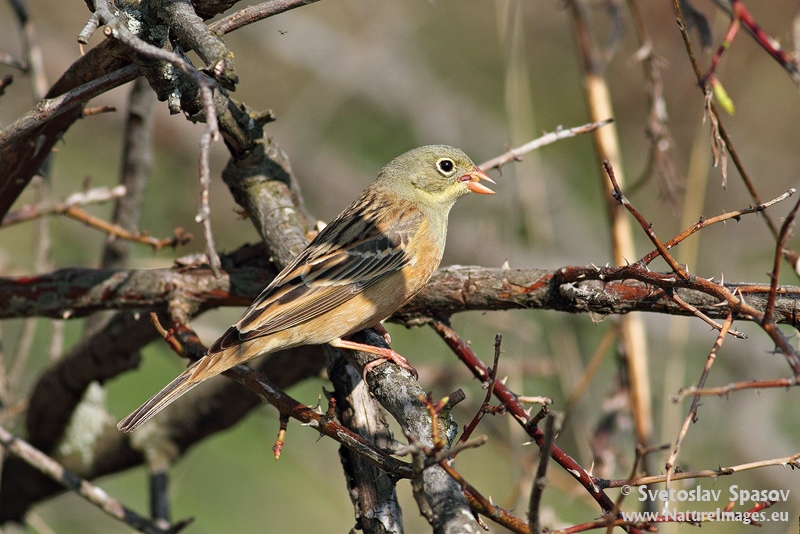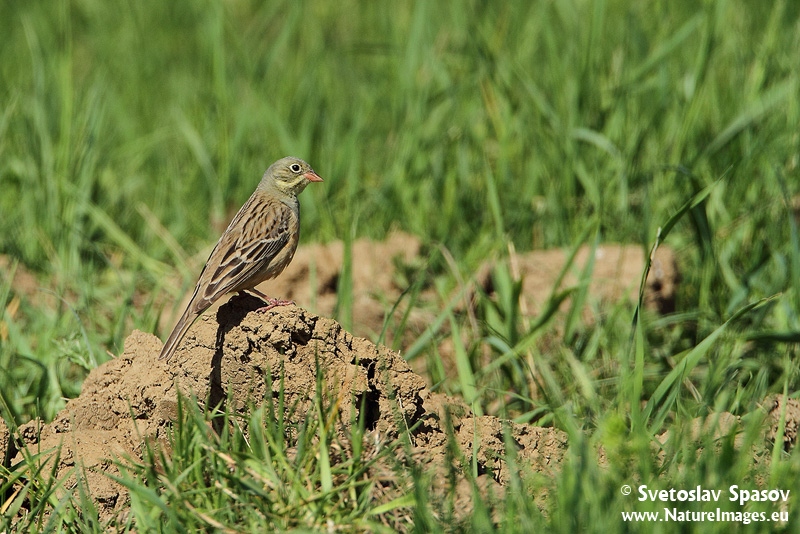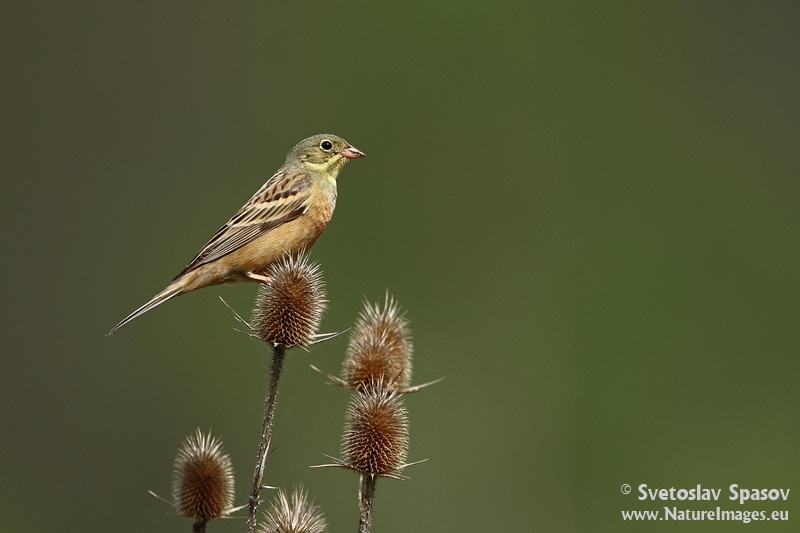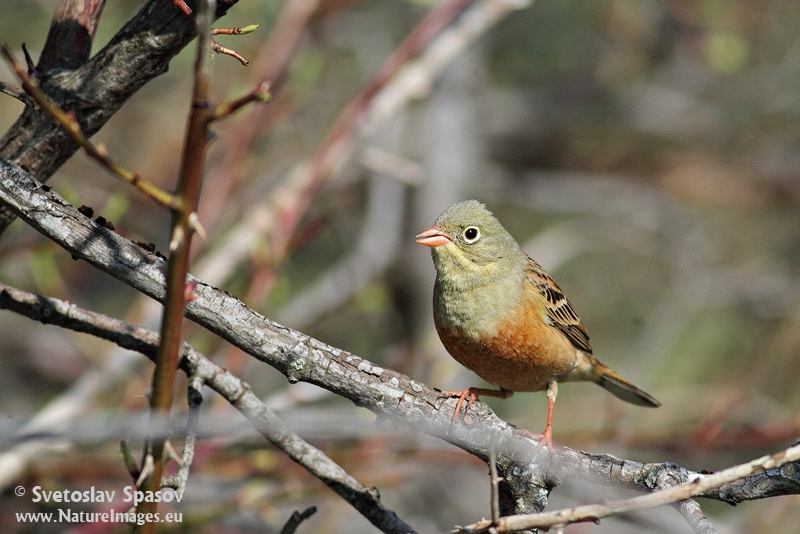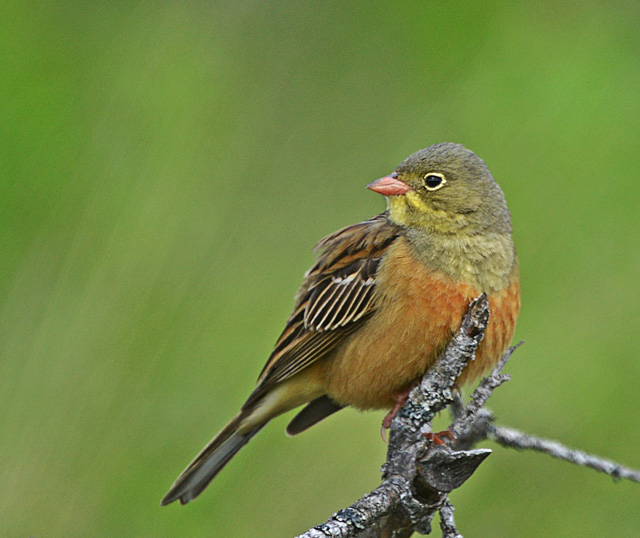Redstart (Phoenicurus phoenicurus)
Ortolan Bunting (Emberiza hortulana)
Rufous tail with dark brown center in all plumages. Most noticeable in flight when tail is spread. Male unmistakable with black face and throat, white band across forehead, orange-red breast and grey back. Female relatively featureless, except for the characteristic rufous tail. Other characters are brown-grey upperparts, pale eye-ring, and orange tinge to breast. Erect posture with frequent tail flicking.
Sound:Alarm call a slightly drawn, Willow Warbler-like "huit" with a rising pitch, followed by a short, soft "tuc". Song distinct, with three parts: First an ascending single note, immediately followed by a trill, then concluding with a squeaky, rattling improvisation that usually contains some mimicry.
Alarm call, song:
Distribution:
Wikipedia: map (se also Xeno-canto below)
Ecology:Birdlife ecology
Links:
Observation.org Latest observations
Image search Flickr NB! May give other species
CCMedium sized bunting, resembling a compact Yellowhammer in shape. Head green with yellow markings and underparts orange-brown. Distinct and characteristic, yellow eye-ring and earth-brown (not rufous) rump in all plumages. Female like male, but duller coloured, with streaked head and chest.
Sound:Distinct bunting-like timbre with very prominent harmonics. Song simple, but varies from region to region. Sometimes structurally similar to yellowhammer, but slower, more melancholic, and with more clearly audible harmonics f.ex. "tze-ti tze-ti tze-ti tweeeee". Beginning with repeated alternating notes (tze-ti) and ending on a lower note fading out with a rising pitch. Sometimes without the ending note (like yellowhammer). Calls: a vaguely House Sparrow-like "chepp", with a ringing quality, and a sharper cut-off "zeep".
Song:
Distribution:
Xeno-canto: map
Ecology:Birdlife ecology
Links:
Observation.org Latest observations
Image search Flickr NB! May give other species
CC
 English
English Albanian
Albanian
 Armenian
Armenian
 Bulgarian
Bulgarian
 Catalan
Catalan
 Croatian
Croatian
 Czech
Czech
 Danish
Danish
 Dutch
Dutch
 Finnish
Finnish
 French
French
 Georgian
Georgian
 German
German
 Greek
Greek
 Hungarian
Hungarian
 Italian
Italian
 Latvian
Latvian
 Lithuanian
Lithuanian
 Macedonian
Macedonian
 Norwegian
Norwegian
 Polish
Polish
 Portuguese
Portuguese
 Romanian
Romanian
 Russian
Russian
 Sami : Lule sami
Sami : Lule sami
 Sami : North sami
Sami : North sami
 Sami : South sami
Sami : South sami
 Scientific names
Scientific names
 Serbian
Serbian
 Spanish
Spanish
 Swedish
Swedish
 Ukrainian
Ukrainian


